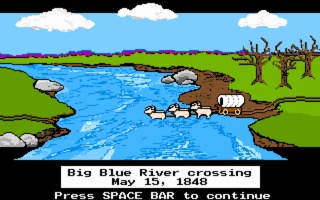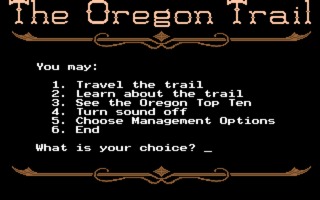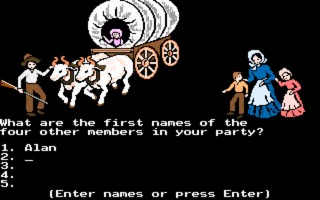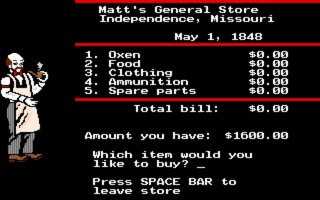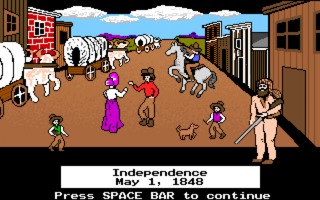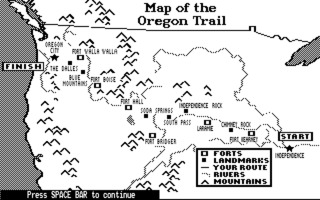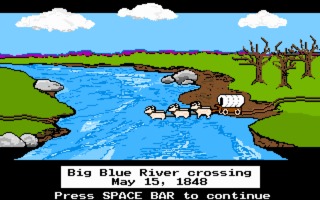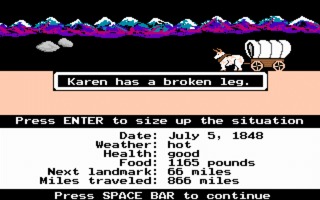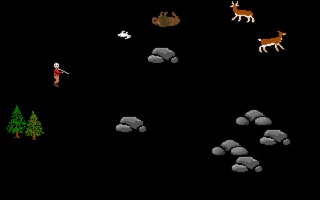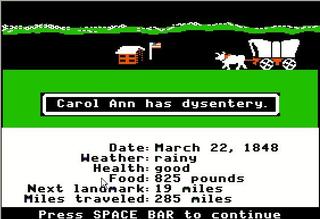The Oregon Trail was developed way back in 1971 on university mainframes, then jumped over to early 8-bit home computer systems. Over 4 decades, it has appeared in many editions (at least 10), was a colossal commercial success in its heyday, and remains popular today.
The Oregon Trail shares its legacy with Where in the World Is Carmen Sandiego? as one of the two games every American child of the 80s and 90s played at school.
Beyond teaching history, The Oregon Trail is essentially a game of strategic and tactical decisions. You make choices at the start about your pioneer's profession (banker, doctor, farmer, carpenter, etc.); what provisions, and in what amounts, you will buy; and what month to begin the journey. All these choices can significantly affect the success or failure of your venture.
Sometimes the effects of your choices will be discovered early on, but others will not become apparent until you are deep in the thick of it, or even near the game's end. Along the trek, there are many forts where you can stop and trade with other pioneers. This can be of crucial importance if it turns out your initial provisioning choices were less than optimal.
It is hard to argue that The Oregon Trail is not brilliantly implemented, especially considering the computer hardware limitations of those elder days. Nonetheless, for me, the main interest and fun of the game was in figuring out the best strategic choices. Don't be surprised if your first couple of tries lead to disaster. After making multiple adjustments that finally result in success, it is satisfying to review your path to victory. OT's internal logic structure is tight, and you will be able to understand how and why success was achieved through your progressive efforts.
In the final analysis, aside from the cachet of being a genuine classic, The Oregon Trail is a solid game worth playing for its well-crafted resource management gameplay and the historical details and insights it offers. If you liked the classic, don't forget to try The Oregon Trail Deluxe too!

